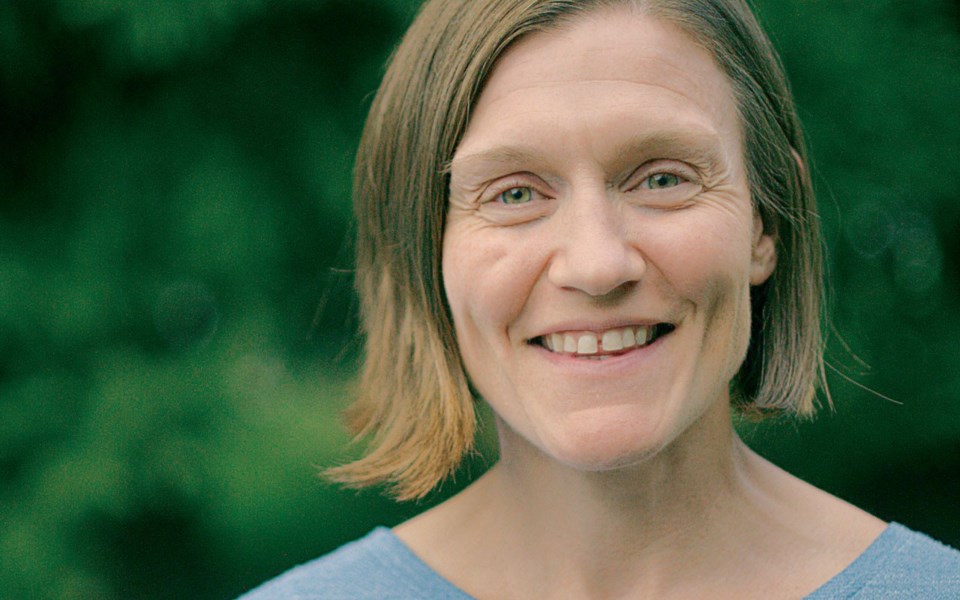Between planning meals, setting up decorations and buying last-minute gifts, Christmas can bring its own set of headaches.
Yet for many, including Pemberton's Erica Hurtubise, the holiday comes as a restful break from the everyday.
"It's about decompressing and spending time together," explained Hurtubise, a mother of two young children who works as a special education teacher at Pemberton Secondary School.
In addition to working full-time and parenting, Hurtubise is the main caregiver for her husband, Jack Hurtubise, whose mental capacity has been diminished by the over 45 radiation sessions he has received in the past decade. The couple is featured in a new documentary web series, called Caring For Those Who Care, highlighting the role of caregivers.
Jack's journey began in 2008, when he fell asleep while driving home from Whistler Blackcomb, where he worked as a ski patroller.
The medical team treated him as a brain-injury trauma patient at first, but after an MRI, they discovered there was a "dark mass" on his temporal lobe. When they biopsied it, they discovered it was glioblastoma multiforme—one of the deadliest forms of brain cancer.
From there, he received two years of chemo therapy and secured a specialty drug, Avastin, through Jack's health insurer. (Erica credits the drug, and Whistler Blackcomb's support in helping secure it, with saving his life.)
Erica has known Jack for 20 years; the couple began dating in 2012. At the time, he had been given the all clear.
But then, in 2017, the cancer came back.
Once again, Jack began with radiation therapy, a process that is degrading his healthy brain cells.
Erica likens Jack's symptoms to early-onset Alzheimer's or dementia.
While Jack remains physically strong, his mind is easily fatigued, making it difficult to get through everyday tasks.
"There is no sense of urgency or time management, so tasks can take two to three times longer," she explained. "Like if Jack was to make dinner, organizing that and having it all prepped and ready could take him two to three hours if he is left to his own devices."
For Erica, her husband's challenges can be hard to watch. "This is a man who has lived so long and survived so much on his own, yet you're watching the cognition decline," she explained.
According to Eric Schulz—one of the filmmakers behind the web series—what striking about Erica is her resilience in the face of adversity.
She is funny, upbeat, and positive, he explained. "Anybody put in that circumstance might choose to put a negative spin on things," said Schulz. "But she just finds a way to always choose positivity and be there for the kids despite having an enormous responsibility on her shoulders."
Like many in the Sea to Sky corridor, Erica credits her mental wellbeing to being active.
A long-time runner, in 2017—not long after giving birth to her second child—she competed in the Whistler Ironman for the first time.
Training is now an important part of her life, especially in the lead up to races, when she can dedicate 14 hours a week to it.
"It's where, I'm with me," she explained. "There is no background noise, nothing needing my attention. No dog barking. No child asking for a drink or a snack, or a husband repeating himself, asking me the same question every 15 minutes."
Erica said that being active has helped keep her grounded and happy despite everything. "I don't want to be morbid, sad and depressed," she explained. "I want my kids to have a positive, happy home. I want them to see a mom that's not just striving—but happy."
If Erica has a message, it's that self-care is important, and that it's something that everyone—and in particular moms and caregivers—should dedicate time to.
"Just as moms in general, I think we get so down on ourselves, and we put these unrealistic expectations on ourselves, on who we should be, and what we should do, and we forget to take care of ourselves," she said.
"Love yourself first; because when shit hits the fan, believe me, you're going to need it."
To learn more about Canadian caregivers and see the mini-documentary series highlighting Erica's work, check out the Stories for Caregivers website.




